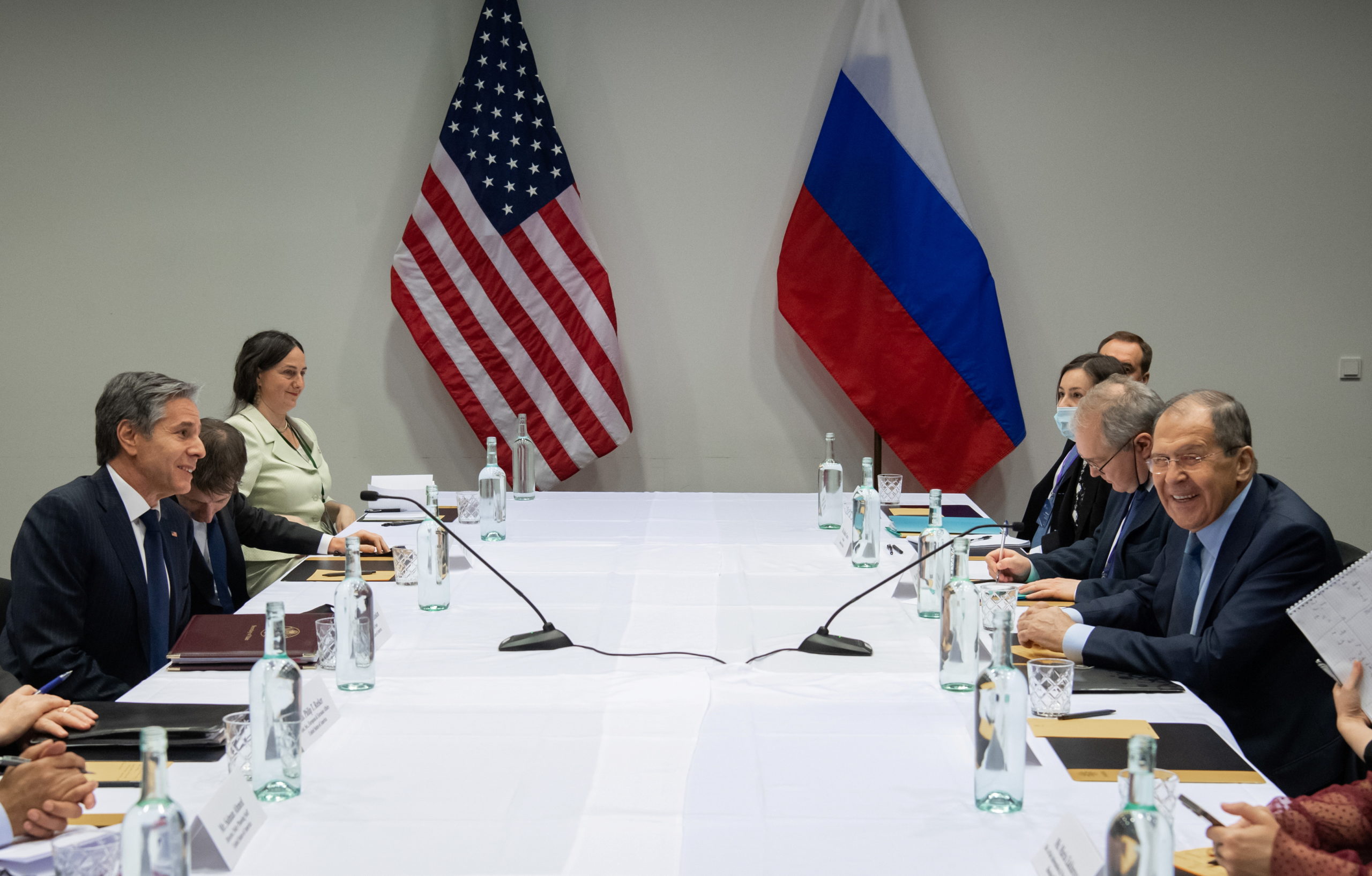Arctic Council marks cordial start to Russian chairmanship in Reykjavik
The event lacked the disputes between the U.S. and other member nations over climate change language that marked the two previous ministerial meetings.

In a summit marked by a return to the diplomatic tenor more typical of top-level Arctic Council meetings, representatives from the eight Arctic countries and their Indigenous populations said Thursday that they look forward to an ambitious Russian chairmanship of the region’s consultative body — even as the body reconsiders of its role in the region.
In addition to maintaining the focus of the outgoing Icelandic chairmanship on environmental and social issues, Moscow’s two-year stint as Arctic Council chair will mark the start of a 10-year strategic plan that includes a review of the way the organization goes about its business.
Founded in 1996 as a forum for addressing environmental issues, the Arctic Council has faced repeated calls to take steps to ensure that it remains relevant. Such calls come as growing interest in Arctic issues from outside the region has seen the ranks of its observers swell to 38 (though no new observers were admitted at this year’s ministerial meeting). At the same time, the list of topics the council addresses has expanded and now includes social and economic issues, as well as collaboration on activities such as search-and-rescue operations.
The strategic plan, adopted Thursday by foreign ministers attending the council’s biennial gathering, being held this year in in Reykjavík, Iceland, seeks to ensure that the Arctic remains “a region of peace, stability and constructive cooperation.”
“I am convinced that the strategic plan will guide the shared efforts of the Arctic states and the permanent participants in improving and streamlining the work of the council in the next decade,” Guðlaugur Þór Þórðarson, Iceland’s foreign minister, said. The Arctic Council’s permanent participants are the six groups representing Indigenous peoples. In a structure that is unique to the Arctic Council, these groups participate in its work on an equal footing with its member countries.
Sergey Lavrov, Russia’s foreign minister, welcomed the plan, which he said “reflected the shared vision” of Arctic countries. During its chairmanship, Russia intended to “keep up the spirit of cooperation” amongst council members, he added.
[Russia, US tout cooperation ahead of Arctic Council meeting]
“We believe that in the coming period, it is important to ensure the continuity of the council’s agenda. We all agree that the [Arctic Council] members bear special responsibility for what is happening in the region.”
Russia, he announced, was also prepared to hold a summit of Arctic countries during its chairmanship. The prospect of such a meeting, which Lavrov described as a “hallmark” event, adds to a seemingly cordial tone amongst the foreign ministers, which included a meeting between Lavrov and Antony Blinken, the U.S. secretary of state, on Wednesday evening that lasted longer than expected.

The Reykjavik ministerial meeting — which capped an ambitious two-year chairmanship by Iceland that was hampered by COVID-19 restrictions — was also noteworthy for what it lacked: controversy over U.S. efforts to water down or eliminate language about climate change.
[How the Trump administration’s climate denial left its mark on the Arctic Council]
At the 2017 ministerial meeting in Fairbanks, shortly after the Trump administration took power vowing to leave the Paris Agreement on climate, U.S. officials sought to remove or soften language about climate change from the meeting’s joint declaration. Though climate change and even the Paris Agreement were eventually included in the Fairbanks Declaration, leaked drafts showed the some of the changes downplaying climate change made it into the final statement.
And in 2019, at the ministerial meeting in Rovaniemi, Finland, then-Secretary of State Mike Pompeo soured relations by giving an aggressive speech on the eve the meeting, while the U.S. blocked that year’s joint declaration entirely over objections to climate change language, the first time in the Arctic Council’s history that had happened.
The Reykjavik Declaration, by contrast, abounds in references to climate change and the body’s efforts to mitigate its impacts in the Arctic.
The fact that Thursday meeting was attended by the foreign ministers of all eight Arctic countries was something of a rarity, according to Nina Buvang Vaaja, the outgoing administrative head of the Arctic Council. She suggested that the fact that it happened was “a success in and of itself,” in particular because the meeting had to work around COVID-19 travel restrictions.
However, during statements to the press at the close of the meeting, Lavrov appeared to warn against increasing NATO activity in the Arctic region, saying that, he “saw no grounds for conflict, and even less so for the development of military blocs.”
At the same time, he called for Arctic states to engage in military discussions as a way to maintain “peace and stability.” The Arctic Council is barred from addressing military issues, and Þórðarson appeared to greet the proposal cooly. Lavrov, however, said Russia was ready to for talks “in various formats and various levels, including the highest level.”